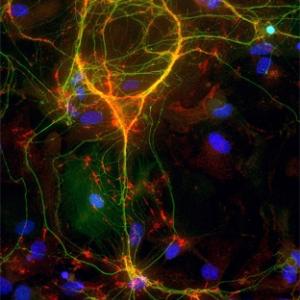Duke University, School of Medicine address systemic racism
This week, both Duke University and the School of Medicine took steps to acknowledge and address systemic racism, both within their institutions and across the nation, with particular emphasis on t
Student Spotlight: Safa Kaleem
This week’s “spotlight” interview shines on Safa Kaleem, a rising fourth-year medical student at the Duke University School of Medicine, as well as a recent graduate of the School’s Clinical Re
Chiba-Falek, Davis receive major grants to study Alzheimer’s disease
Ornit Chiba-Falek, PhD, and Simon Davis, PhD, both recently received new grants for multidisciplinary research to advance our understanding of Alzhiemer’s disease.
Resident Spotlight: Ariel Lefland, MD
Ariel Lefland, MD, has been drawn to neurology for as long as she can remember.
Staff Spotlight: James Camp, MSN
James Camp, MSN, likes to think of himself as the Moriarty of Duke University Hospital’s neuro Intensive Care Unit (ICU), where he works behind the scenes, plotting ways to improve safety, inno
Duke Neurology Research Round Up, June 2020
In May 2020, members of the Duke Neurology Department contributed to nine new peer-reviewed journal articles.
Staff Spotlight: Caroline Folger
Dozens of behind-the-scenes financial consequences and questions result from even the simplest of clinic visits to one of our neurologists.
Taking a giant leap: Private family support propels promising new ALS study
When facing an illness such as ALS, one in which there currently is no proven treatment to stop or reverse it, patients often look to clinical trials for options for living longer and better lives.
Calakos, La Spada awarded distinguished professorships
Nicole Calakos, MD, PhD, and Al La Spada, MD, PhD, have been awarded distinguished professorships from Duke University.
Treating neurocognitive, physical limitations in patients with brain cancer
While radiation and chemotherapy treatments for brain cancer can help shrink tumors, they can also lead to neurocognitive limitations that severely affect a patient’s quality of life.








